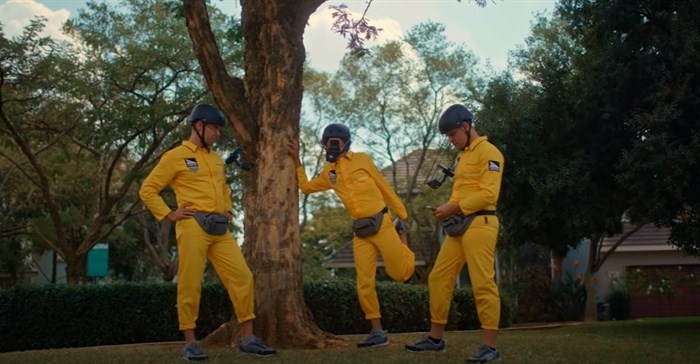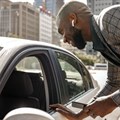#OrchidsandOnions: Human Uber alles...

A South African trait that has taken a pummelling in the past two years has been our ability to laugh at ourselves or, at the very least, laugh at our society.
The ads for King Price insurance have always been quintessentially South African – and that true local spirit means being not afraid to tackle difficult, or even painful, subjects with humour.
Finding something to chuckle about in the spiralling fuel price, though, takes quite a bit of comic genius... yet King Price has managed it, just as they have with many of their ads which have got Orchids from me in the decade the brand has been in existence.
The message in the latest one is that fuel has become so costly that soon we will be commuting via “Thatha” – a human-powered Uber. So it’s no longer internal combustion power, but muscle power, which will get us around.
We see the piggyback ride-hailing okes carrying all manner of people, from high-powered businessmen to moms with babies.
There are clever touches, like the cellphones mounted with the driver, no doubt so the app can function properly.
It wouldn’t be truly South African without some sort of humorous commentary – and this comes via a government “blue light brigade”... on bicycles, complete with uniformed escorts, so our politicians can still run their “one up on you” smirks past us.
The bottom line is that when fuel prices go up, King Price has got your back. The numbers may rise at the pumps, but King Price’s premiums keep coming down (assuming you have a good claims record, I presume).
It’s a laugh, it is bang up to date and it also makes a very good marketing point for the brand.
Well done, King Price, step up and collect yet another Orchid.
Taking the ‘misleading advertising’ road
The adage that “bullsh*t baffles brains” could apply word-for-word to the marketing world, so often do advertisers stretch reality and massage facts to portray their product as “the best” in a particular area or market segment.
The latest to jump on that misleading bandwagon is Indian carmaker Mahindra, which is proclaiming that its middle-sized SUV, the XUV300, is the “safest car in Africa”.
That is quite a statement to make considering that, according to its own website, the base models of the vehicle are fitted with just two airbags and do not have electronic stability control as standard.
The claim is based on the New Car Assessment Programme (NCAP) series of crash tests for vehicles on the African market – and specifically those at the entry-level part of the range.
These smaller – and cheaper cars – are not nearly as well equipped, safety-wise, as expensive European, Japanese and even cars of US origin which are sold here.
That alone invalidates the claims that the XUV 300 is the “safest car in Africa”. For example, most of Subaru’s models sold here (disclosure: I own two) have achieved top marks in the US Insurance Institute for Highway Safety new car assessments, which go much further than one simple crash test, as the Africa NCAP does.
These cars have advanced safety systems, including autonomous emergency braking, as well as protection for pedestrians in collisions, so to label the XUV 300 safer than them is not just simply ludicrous, it is false.
It is also interesting to note that when the Africa NCAP was launched in 2018, in conjunction with the Automobile Association of South Africa, it was stipulated that a car could only achieve a five-star rating if it had an electronic stability programme. Mahindra’s own website indicates that not all models do.
The reality is that the XUV 300 is a safe car, compared to others in that sector... and some have been really poor performers, so the Mahindra is definitely a step up.
But to claim your car is the safest in Africa when that is manifestly not true – or is certainly not explained in enough detail for a consumer to make an informed choice – is fundamentally misleading.
And trying to bullsh*t customers will always get an Onion from me... so, a five-star Onion for Mahindra.











































